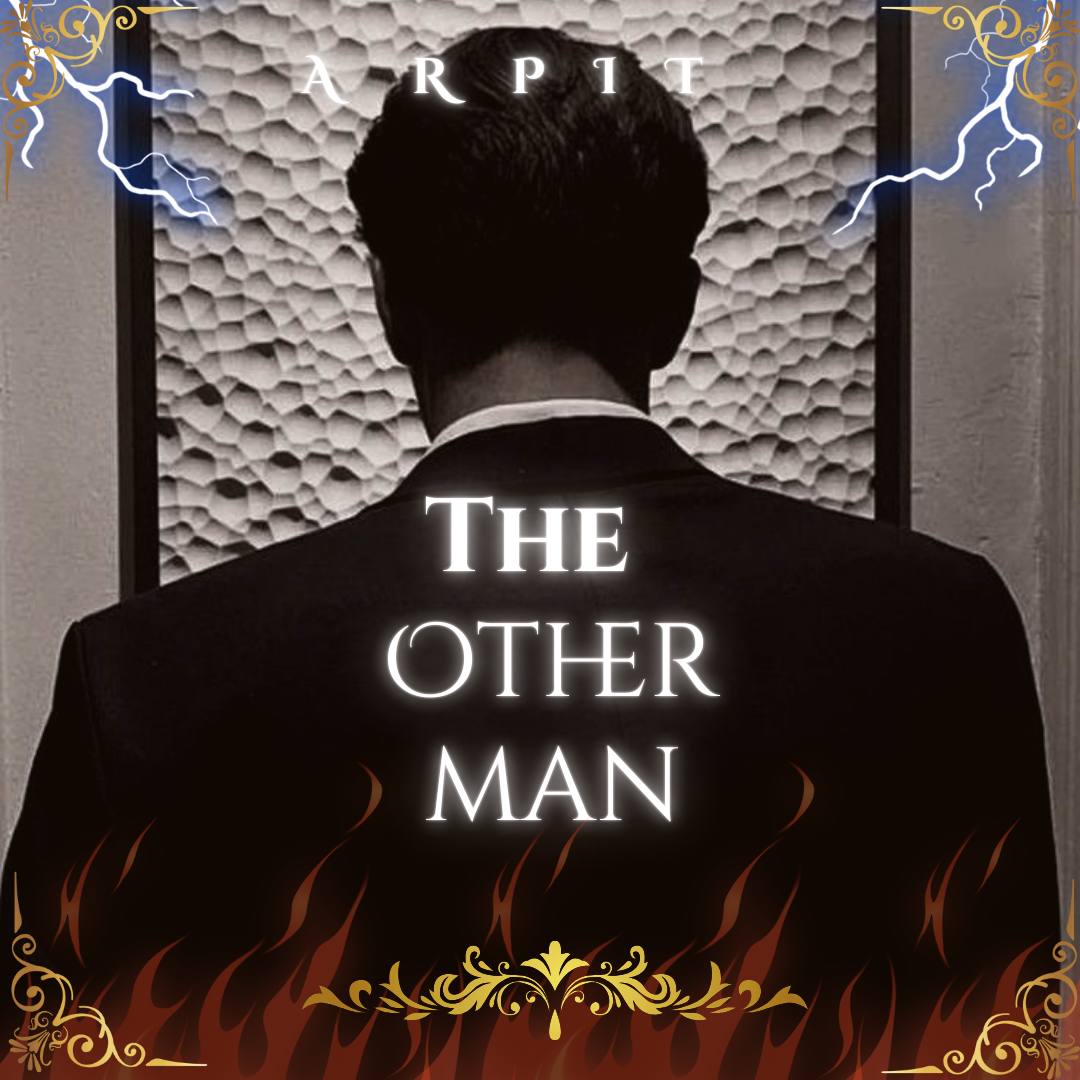
By midday, the desert village emerged on the horizon like a mirage turned real—its mud-plastered homes squatting low under the ruthless sun, their thatched roofs bleached and cracked by time. Flocks of goats ambled lazily along narrow pathways, their herders shouting in Marwari too quick for Akhand to catch.
He parked the rented jeep at the edge of the village, slinging his canvas bag over one shoulder. The earth beneath his boots was dry and split, like the surface of a broken promise.
As he stepped into the heart of the settlement, eyes turned toward him.
Not welcoming.
Not hostile.
Just... measuring.
His jeans were dusty but still marked him a stranger. His white shirt clung to his back with sweat, collar open, sleeves rolled. He looked like someone who didn’t belong—not just to the place, but to the soil itself.
He stopped a group of elderly men seated under a neem tree, playing cards.
"Excuse me, uncle... I’m looking for a plot of land that once belonged to Ranjana Devi. Daughter of Kishanlal from Mitha Baas."
Their game stopped.
One man slowly set his cards down, his eyes narrowing.
Another stroked his white beard, staring at Akhand’s shoes like they had committed a sin.
The third one spat to the side, got up without a word, and walked away.
No one replied.
Akhand blinked, unsure.
He tried again—another street, another group. Some were mending a charpoy, others selling vegetables from a bullock cart.
"Namaste… I was told my mother’s land is near the southern dunes, near the old well… do you know—"
But the moment he spoke, their backs stiffened.
They eyed his jeans, his clean-shaven face, the unfamiliar accent soaked in city rhythm.
One woman, face half-covered with her odhani, pulled her daughter behind her and whispered something to her husband.
Akhand stepped back. Their eyes were full of suspicion. Not hatred. Not fear. Just… cold distance.
As if he were a ghost walking through a place he had no right to return to.
The Chai Stall
Frustrated and weary, Akhand wandered down a cracked path to the edge of the village and found a modest tea stall with a tin roof and charred bricks for a counter. A rusted sign hung lopsided above it:
“Laxman Chai Bhandar”
An old radio played a distant folk tune. The air smelled of cardamom and dust.
He sank onto a wooden bench and wiped the sweat from his brow. The chaiwala, a wiry man with sun-leathered skin and sharp eyes, poured a cup of tea without asking.
"Thanda toh lag raha hai, sheher se ho?"
(You look hot… you're from the city, aren't you?)
Akhand accepted the cup and nodded.
"Haan... Delhi."
The man chuckled.
"Dilli ke logon ko toh yeh mitti choomti bhi nahi. Aap kya kar rahe ho yahan?"
(The earth doesn’t even bow to Delhi folks. What brings you here?)
Akhand hesitated for a moment, then said:
"I'm here for my mother. Ranjana Devi. She was born in this village. The land she inherited from her father—I'm here to find it."
The man paused, spoon hovering over boiling tea.
"Ranjana..."
There was a flicker of recognition in his eyes. But it passed quickly.
"Zamana ho gaya us naam ko sune."
(It’s been ages since anyone’s spoken that name.)
He looked around, as if checking if someone was watching, then leaned in slightly.
"You speak too clean. You wear jeans. They think you're here to buy land, or worse—take it. They don’t trust outsiders, especially ones who come speaking court papers and bloodlines."
Akhand looked down into his cup, the steam curling into the air like smoke from old secrets.
"It’s not about property. She wanted to build something here… a school. A hospital maybe."
The man studied him quietly, then said:
"Good men come with dreams. But dreams don’t grow in sand unless you know how to bleed for them."
Akhand sipped the tea. It was bitter. And grounding.
He realized he wasn’t just in a different place.
He was on trial.
And the land… it was watching.
By the time the sun began to sink beneath the horizon, staining the sky with hues of dying fire, Akhand was still empty-handed.
He had walked every broken lane, every forgotten turn in the village—from the crumbling temple by the dried-up well to the edge of the wheat fields where peacocks called out to no one in particular. His voice had grown hoarse from repeating the same questions. Names. Land. Ranjana Devi.
The answer was always the same.
Silence.
Or worse—strange looks followed by quiet nods and turned backs. Women drew their veils tighter. Men stopped mid-conversation when he passed by.
His words, polished and laced with city cadence, sounded foreign here—like rusted brass clashing with an old shehnai. And his clothes—denim jeans and a tucked shirt—made him stick out like a sore thumb in a land where the men wore kurta-pajamas, and the women moved like shadows in ghagras and odhanis, their faces never fully seen.
He could feel it in the air.
Distrust. Alienation. Silence.
As night swallowed the last of the village’s sounds, Akhand trudged back to his dust-coated jeep, parked beneath a twisted babool tree at the outskirts.
He sat in the driver's seat and shut the door with a hollow thud. The air inside was stifling, hot and thick with exhaustion.
His back ached from the day's endless walking.
His legs were sore.
He leaned his head against the steering wheel and let out a deep sigh that came from somewhere buried far within. For the first time, doubt began to creep in.
"Maa... how did you ever call this place home?"
he whispered to the silence.
He reached into the paper bag beside him, pulling out a few overripe bananas and a couple of guavas he had bought from the market earlier. It wasn’t dinner—but it was all he had.
He ate in silence, chewing slowly as the night deepened. The village had no streetlights—only lanterns behind shuttered doors, and the occasional distant bark of a dog.
The sky above him was a sweep of stars so vast it made him feel small.
More alone than he had felt in years.
He reclined the seat slightly and stretched out his legs, trying to find a comfortable angle. His muscles protested. His neck throbbed. His back felt like stone.
This wasn’t just physical tiredness.
It was emotional weight.
A rejection not of him, but of what he carried.
His mother’s name. Her dream. Her story.
The land she loved had turned its face away.
And yet… he couldn’t leave. Not yet. Something in him had changed—firmed into resolve.
He didn’t come here to be welcomed.
He came here to remember her.
To finish what she never could.
The last thing he saw before sleep took him was the curve of the moon, caught in the crooked branches above like a silver coin in a broken nest.
And for a moment, as his eyelids slipped closed, he thought of her.
His Maa.
The woman whose dream still lingered in the dust.
Sneak peek - Chapter 6
At the bazaar, she stopped near a stall where vibrant marigolds and jasmine garlands hung like golden waterfalls. The vendor, an elderly woman with tired eyes, handed her a fresh string.
"Shaadi ke liye le rahi ho, na beti?"
(Buying these for your wedding, aren’t you, child?)
Mugdha forced a smile.
"Puja ke liye hain."
(They’re for the puja.)










Write a comment ...